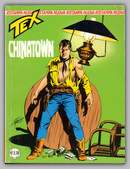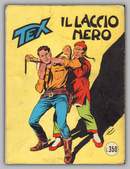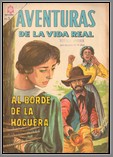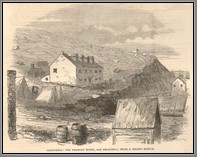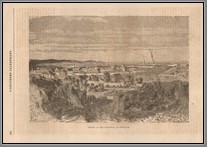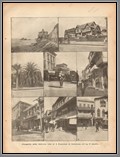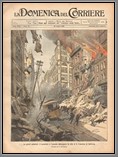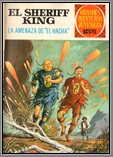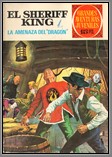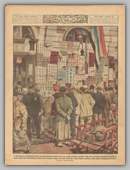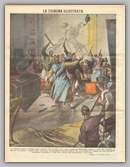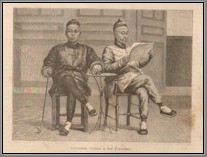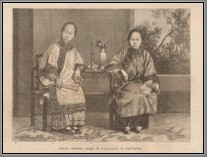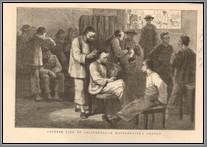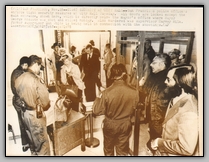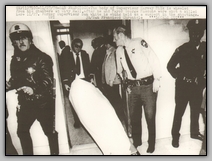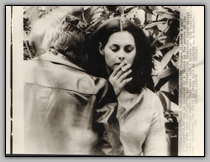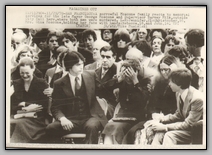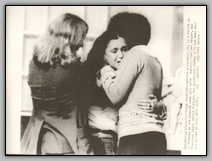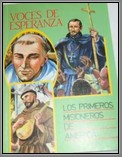Californiana
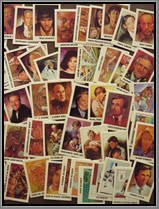 WA 045Complete set of 110 American trade cards titled Aids Awareness. Produced in 1993 by Eclipse Enterprises of Forestville, California, shortly before it went bankrupt. This is a unique collection of American popular culture of the late 1980’s, by a California company that faced lawsuits over publishing these cards and eventually went bankrupt, less than a year after these cards were produced. Not included is the large box containing 50 packages of cards or the wrapper. M
WA 045Complete set of 110 American trade cards titled Aids Awareness. Produced in 1993 by Eclipse Enterprises of Forestville, California, shortly before it went bankrupt. This is a unique collection of American popular culture of the late 1980’s, by a California company that faced lawsuits over publishing these cards and eventually went bankrupt, less than a year after these cards were produced. Not included is the large box containing 50 packages of cards or the wrapper. M
Price: $400.00
Note: Eclipse Comics was an American comic book publisher, one of several independent publishers during the 1980s and early 1990s. In 1978, it published the first graphic novel intended for the newly created comic book specialty store market. It was one of the first to offer royalties and creator ownership of rights, and the first comics company to publish trading cards. 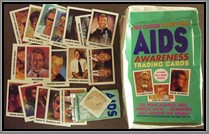 WA 045The company was founded as Eclipse Enterprises by brothers Jan and Dean Mullaney in 1977.During the early 1980s, Eclipse moved several times, settling finally in Forestville in Sonoma County, California. During the 1980s, Eclipse brought out a new line of non-fiction, non-sports trading cards. Controversial political subjects such as the Iran-Contra scandal, the Savings and Loan crisis, the AIDS epidemic, and the Kennedy Assassination, as well as true crime accounts of serial killers, mass murderers, the Mafia, and organized crime were covered in these card sets. One of the last sets they produced was on AIDS awareness and featured a free condom with every package of cards. There was such a controversy over these cards that several groups fought Eclipse in the courts to have the cards banned. In 1986, Eclipse lost most of its back-issue comics stock in a flood. This event, along with personal problems of the owners, and the mid-1990s collapse of the direct market distribution system, caused the company to cease operations in 1994 and file for bankruptcy in 1995.
WA 045The company was founded as Eclipse Enterprises by brothers Jan and Dean Mullaney in 1977.During the early 1980s, Eclipse moved several times, settling finally in Forestville in Sonoma County, California. During the 1980s, Eclipse brought out a new line of non-fiction, non-sports trading cards. Controversial political subjects such as the Iran-Contra scandal, the Savings and Loan crisis, the AIDS epidemic, and the Kennedy Assassination, as well as true crime accounts of serial killers, mass murderers, the Mafia, and organized crime were covered in these card sets. One of the last sets they produced was on AIDS awareness and featured a free condom with every package of cards. There was such a controversy over these cards that several groups fought Eclipse in the courts to have the cards banned. In 1986, Eclipse lost most of its back-issue comics stock in a flood. This event, along with personal problems of the owners, and the mid-1990s collapse of the direct market distribution system, caused the company to cease operations in 1994 and file for bankruptcy in 1995.
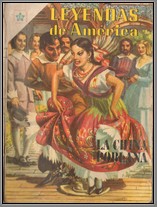 CEP 206Mexican comic book La China Poblana, 1958. It is the story of Catarina de San Juan. Cover wear, one page repaired. M
CEP 206Mexican comic book La China Poblana, 1958. It is the story of Catarina de San Juan. Cover wear, one page repaired. M
Price: $90.00
Note: Catarina de San Juan known as the China Poblana was a slave that, according to legend, belonged to a noble family from China. She was brought to Mexico through the Spanish East Indies (Philippines), and has been credited since the Porfiriato with creating the China Poblana dress. After converting to Catholicism in Cochin —a city where she was kidnapped by Portuguese pirates—, Mirra was given the Christian name Catarina de San Juan, the name she was known as in Angelópolis where she worked as a slave, got married, and eventually became a beata - a religious woman who took personal religious vows without entering a convent. Upon her death, Catarina de San Juan was buried in the sacristy of the Templo de la Compañía de Jesús in Puebla, in what is popularly known as Tumba de la China Poblana or Tomb of the Chinese Pueblan. (Note that in Hispanic cultures at the time it was common to use the term chino to refer to all persons of Asian descent, regardless of actual ethnicity.)

